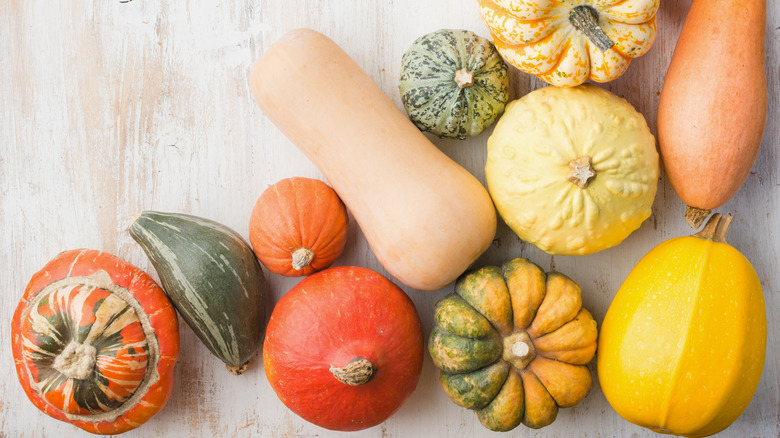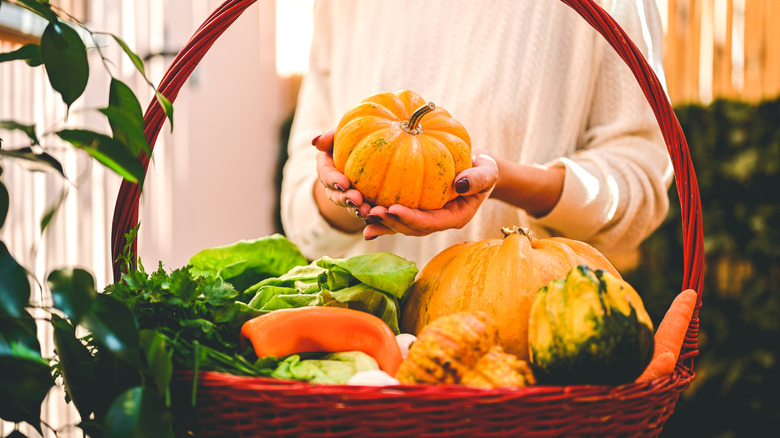The Types Of Squash That Will Keep Fresh The Longest
When you think of all the very best squash recipes, the sweet, nutty flavor of the fruit is likened to something consumed in the fall and winter. Savory squash casseroles and spiced baked butternut squash is eaten in between sips of mulled wine and bites of turkey and cranberry sauce.
Planted during the warmer months, winter squashes are harvested in the earlier months of fall, from September to October. While this is just in time for Thanksgiving, preserving the squash for bright, spring and summer recipes proves to be difficult. While some winter squashes, such as the acorn squash, only last for a few weeks, not all varieties are made equal.
With the right type of storage techniques, you can keep your winter squashes for a couple of months. For them to last far past the expected rotting date, choosing long-lasting squashes, such as butternut, hubbard, and kabocha, is key.
Use this technique to keep squashes for longer
Before you store away your squash, they'll need to spend a bit more time outside to prepare for the long winter ahead. When harvested, the skin of the squash is too soft to protect the flesh within. By undergoing a process known as "curing," the outer shell hardens, creating a proper barrier between the outside and the fruit within. Curing can be detrimental to certain types of squash, but it works for butternut, hubbard, and kabocha.
To cure the squash, place it outside on a flat, dry surface for about 10 days. Rotate it every other day to ensure that all sides of the squash get an equal amount of sunlight. When squash is properly cured, the outside will be hardened and it won't be easy to make a dent with your nail on the surface of the squash.
Afterward, butternut squash can last for up to four months, hubbard squash for six months, and kabocha until eight months later. Store the squash on a shelf in a cool, dry place with a temperature ranging from 50 to 55 degrees Fahrenheit. Check occasionally for dark spots that could indicate rot. Around two or three months in, the squashes turn sweeter, making that the perfect time to cook with them. Winter squash is delicious when roasted with brown sugar and nutmeg or blended into creamy fall vegetable soup.

